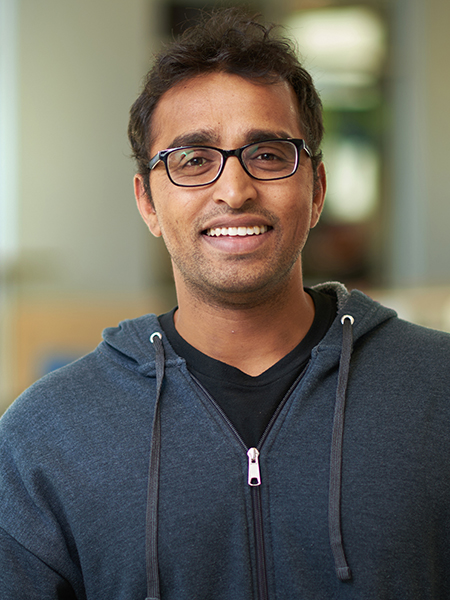Purdue Prof. Aravind Machiry receives ACM ESEC/FSETest of Time Award for groundbreaking Android app testing system

A Purdue University professor has won the Test of Time Award from the ACM Joint European Software Engineering Conference and Symposium on the Foundations of Software Engineering (ESEC/FSE). The Test of Time Award is given annually, recognizing highly influential papers published ten years ago in ESEC or FSE. Aravind Machiry, Assistant Professor in the Elmore Family School of Electrical and Computer Engineering, received the award for a paper entitled "Dynodroid: an input generation system for Android apps," which was published in August 2013.
"This is my first academic research project, and I am grateful to have this work receive such a high recognition,” said Machiry. “I am also grateful to my advisor Mayur Naik, for encouraging me to pursue the idea when I pitched this to him as a fresh graduate student."
The paper details the development of a system called Dynodroid, which is designed to help test Android apps more effectively. It treats Android apps like programs that respond to actions from users or the system. Dynodroid uses a smart approach to monitor how the app reacts to these actions and then generates more events to test the app, making sure it works well. It can mix events created by machines and humans to test apps thoroughly.
In a test with 50 open-source Android apps, Dynodroid outperformed two other methods commonly used for testing apps: people manually using the apps and a tool called Monkey. Dynodroid, human testers, and Monkey were able to test around 55%, 60%, and 53% of the app's code, respectively. However, Monkey needed 20 times more events than Dynodroid. Additionally, Dynodroid discovered nine issues in seven out of the 50 apps it tested and six issues in five of the most popular 1,000 free apps on Google Play. This research suggested that Dynodroid is a powerful and efficient tool for finding problems in Android apps.
Machiry is the lead author of the paper. Mayur Naik and Rohan Tahiliani, who were both at Georgia Tech at the time the paper was published are co-authors.
Naik says Machiry was the driving force behind the research.
“I still remember the exact day (and time!) he walked into my office with this idea as a Masters student, and I immediately realized it would be HUGE,” said Naik. “I stopped whatever I was doing and helped him publish it."
The ESEC/FSE conference is an internationally renowned forum for researchers, practitioners, and educators to present and discuss the most recent innovations, trends, experiences, and challenges in the field of software engineering. ESEC/FSE brings together experts from academia and industry to exchange the latest research results and trends as well as their practical application in all areas of software engineering.
